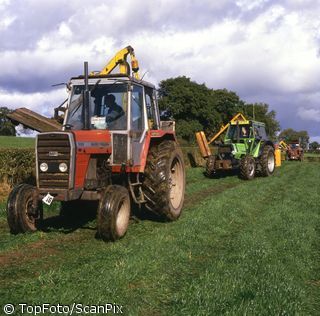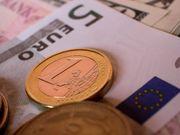It is the only source that can provide a chance for economic breakthrough
Published:
21 March 2005 y., Monday
Money from Russia’s Stabilisation Fund is expected to be invested abroad in dollar-nominated securities, with minimum investment risks and minimum profitability at 2-4%. These funds have until now been kept in Central Bank accounts. This means that a great deal of money will soon appear on the financial markets. On February 1, 2005, the Fund totaled 647.2 billion roubles ($23.1 billion), which mostly came from taxes on oil sales with prices exceeding $20 per barrel and export duties from oil companies.
The crucial question is how this money should be used. Money can only be taken out of the Fund when it has more than 500 billion roubles. Therefore, more than a fifth of its resources can already be used. This is a key issue for Russia’s economy, as the positive overseas market situation in recent years has been almost exclusively responsible for its growth.
However, experts are not tired of repeating that the potential of the resource-oriented Russian economy has been virtually exhausted. The mechanism whereby "we produce oil, sell it and enjoy the benefits" is becoming increasingly less effective. The country is now at a stage when it must introduce an industrial policy. However, any policy only makes sense when there is money to implement it.
Russia’s stock market and banking system do not provide the necessary financing for the real sector of the economy. Direct foreign investment in Russia remains at a very low level, while foreign investment in general is concentrated on either the import of equipment or foreign borrowings. The country obviously needs sources for further growth. The Stabilisation Fund is virtually the only potential source today and a genuine war is being waged for its funds.
Šaltinis:
financialexpress.com
Copying, publishing, announcing any information from the News.lt portal without written permission of News.lt editorial office is prohibited.
The most popular articles
 The European Commission has adopted additional legislative proposals today to further strengthen financial supervision in Europe.
more »
The European Commission has adopted additional legislative proposals today to further strengthen financial supervision in Europe.
more »
 The EU has announced plans to regulate the market for derivatives – complex financial products that helped trigger the financial crisis.
more »
The EU has announced plans to regulate the market for derivatives – complex financial products that helped trigger the financial crisis.
more »
 New proposals to help EU farmers through the milk price crisis were backed by Parliament on Thursday.
more »
New proposals to help EU farmers through the milk price crisis were backed by Parliament on Thursday.
more »
 The European Commission and the European Investment Bank (EIB) Group are organising a conference in Brussels on 22 and 23 October to further promote two initiatives designed to increase the use of financial engineering instruments in the framework of cohesion policy.
more »
The European Commission and the European Investment Bank (EIB) Group are organising a conference in Brussels on 22 and 23 October to further promote two initiatives designed to increase the use of financial engineering instruments in the framework of cohesion policy.
more »
 The biggest thermal insulation production manufacturer in Finland “Finnfoam” has started the construction of a thermal insulation production plant in Kaunas FEZ.
more »
The biggest thermal insulation production manufacturer in Finland “Finnfoam” has started the construction of a thermal insulation production plant in Kaunas FEZ.
more »
 The European Investment Bank (EIB) is providing two loans in Hungary.
more »
The European Investment Bank (EIB) is providing two loans in Hungary.
more »
 Key Western Balkan projects to benefit from new funding EU, IFI financing to focus on infrastructure, SMEs and energy efficiency.
more »
Key Western Balkan projects to benefit from new funding EU, IFI financing to focus on infrastructure, SMEs and energy efficiency.
more »
 Lithuania, Belarus and China will cooperate in the development of the initiative of the East-West transport corridor.
more »
Lithuania, Belarus and China will cooperate in the development of the initiative of the East-West transport corridor.
more »
 On October this year AB Bank SNORAS will provide preferential UAB “Guarantee Fund of Agricultural Loans ” purpose loans to farmers and companies, which scope of activity is economic activity and processing of agricultural production.
more »
On October this year AB Bank SNORAS will provide preferential UAB “Guarantee Fund of Agricultural Loans ” purpose loans to farmers and companies, which scope of activity is economic activity and processing of agricultural production.
more »
 The European Commission has today approved an application from Austria for assistance under the European Globalisation Adjustment Fund (EGF).
more »
The European Commission has today approved an application from Austria for assistance under the European Globalisation Adjustment Fund (EGF).
more »